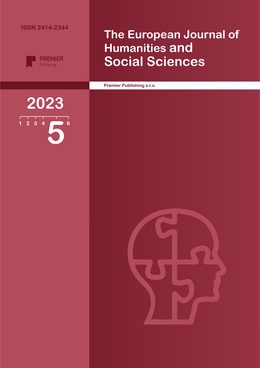Risk Factors for Mental Health among Adolescents during the COVID-19 Pandemic
Authors
Anthony Ju

Share
Annotation
The COVID-19 pandemic has greatly disrupted the daily life of adolescents nationalwide. According to the Centers of Disease Control and Prevention (CDC), more than half of students experienced emotional abuse in the home, more than 1 in 3 high school students experienced poor mental health during the pandemic and nearly half of students felt persistently sad or hopeless.
In this research, we investigated possible risk factors for mental health during the COVID-19 pandemic among adolescents and identified the most significant positive and negative factors through logistic regression. We used the 2021 Adolescent Behaviors and Experiences Survey data with features ranging from demographic information to the adolescents’ family condition. The response variable is whether an adolescent has good or bad mental health during the COVID-19 pandemic.
After processing the dataset, we built a logistic regression model to predict whether an adolescent is likely to develop meatal health problems. By investigating the logistic regression coefficients, we found that parents’ attitude toward the adolescent, the gender of the adolescent, and the family’s financial ability to cover food are all risk factors. The logistic regression model has achieved an AUROC score of 0.78, with 68.2% true positive rate (TPR) and 28.0% false positive rate (FPR). This predictive model is helpful for healthcare professionals to identify and reduce the risk for the adolescents that are prone to the mental problems during the pandemic.
Keywords
Authors
Anthony Ju

Share
References:
The COVID-19 pandemic has greatly disrupted the daily life of adolescents nationalwide. According to the Centers of Disease Control and Prevention (CDC), more than half of students experienced emotional abuse in the home, more than 1 in 3 high school students experienced poor mental health during the pandemic and nearly half of students felt persistently sad or hopeless.
In this research, we investigated possible risk factors for mental health during the COVID-19 pandemic among adolescents and identified the most significant positive and negative factors through logistic regression. We used the 2021 Adolescent Behaviors and Experiences Survey data with features ranging from demographic information to the adolescents’ family condition. The response variable is whether an adolescent has good or bad mental health during the COVID-19 pandemic.
After processing the dataset, we built a logistic regression model to predict whether an adolescent is likely to develop meatal health problems. By investigating the logistic regression coefficients, we found that parents’ attitude toward the adolescent, the gender of the adolescent, and the family’s financial ability to cover food are all risk factors. The logistic regression model has achieved an AUROC score of 0.78, with 68.2% true positive rate (TPR) and 28.0% false positive rate (FPR). This predictive model is helpful for healthcare professionals to identify and reduce the risk for the adolescents that are prone to the mental problems during the pandemic.


